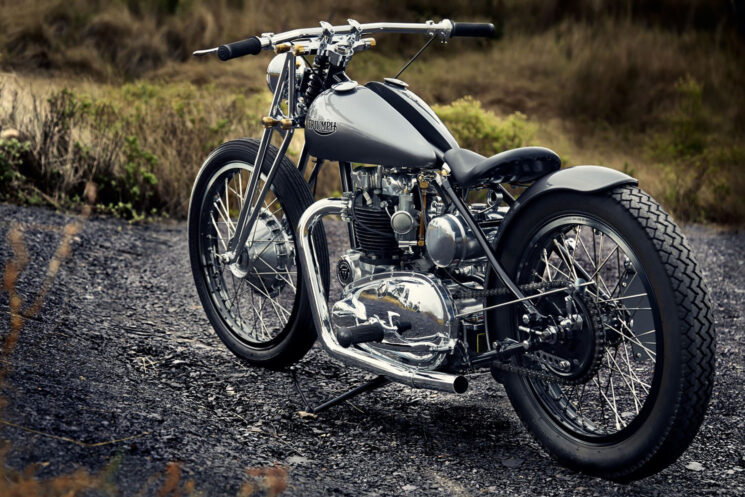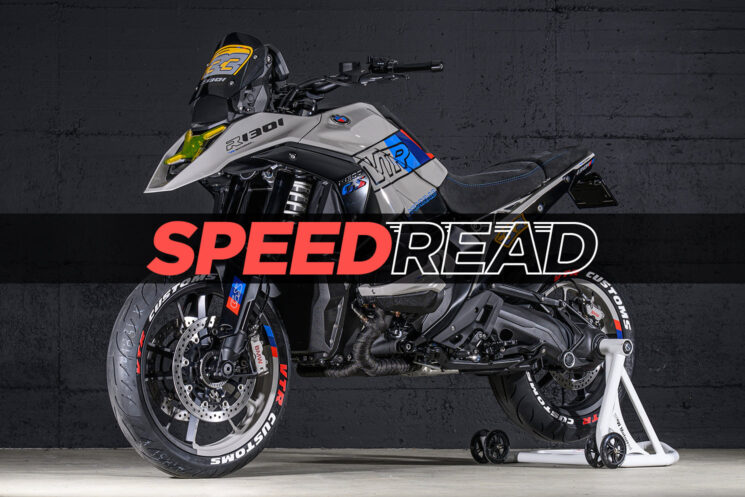
The Swiss maestros at VTR Customs deliver the first custom BMW R1300GS that we’ve seen, while Radical Speedshop builds a bespoke Moto Guzzi café racer like no other. We also look at a tidy Yamaha XT500 restomod and a stunning 1949 Triumph Speed Twin bobber.
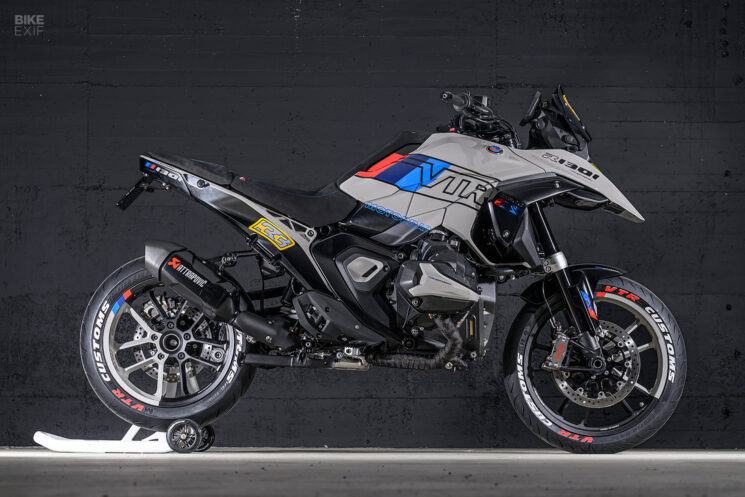
BMW R1300GS by VTR Customs When BMW announced its new flagship adventure motorcycle, the BMW R1300GS, we knew it was only a matter of time before we saw it customized. Thanks to Switzerland’s VTR Customs, we didn’t have to wait too long.
Big adventure-style bikes with go-fast bits are all the rage right now. Machines like the Ducati Multistrada V4 RS and BMS M1000XR are primed for riders who want adventure bike ergonomics in a performance-orientated road-going package. This is probably what inspired the mad scientists at VTR Customs.
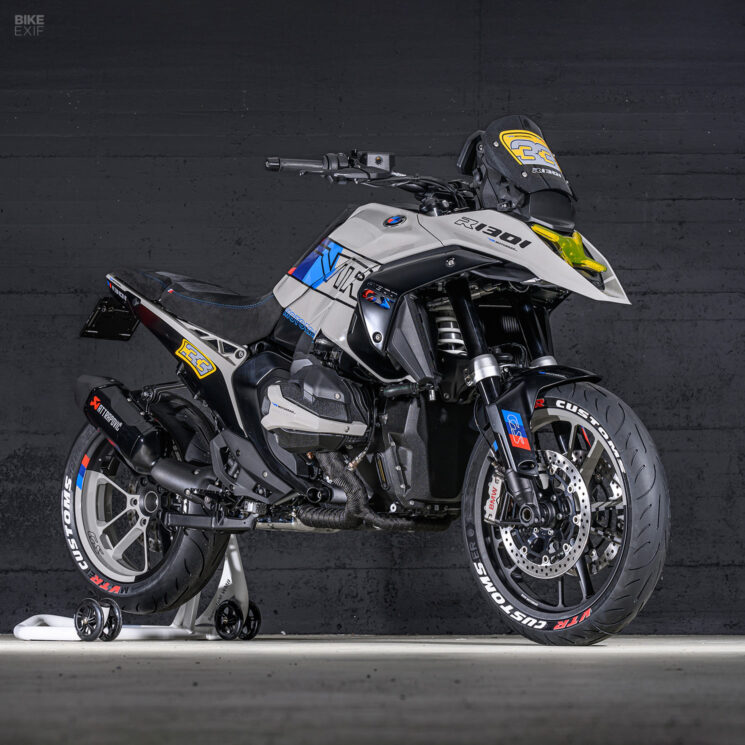
Their build still resembles a BMW R1300GS, but it’s much leaner. To pare down the front, they replaced the windshield with the shortest one available, removed the hand guards, and fitted short brake and clutch levers. A short front fender was fitted under the BMW’s signature beak, providing the engine with a touch more protection from anything sloughing off the sticky Metzeler Supersport tires.
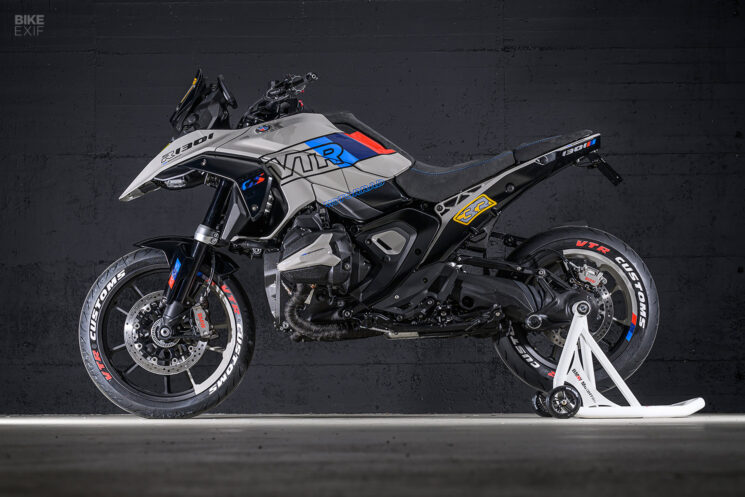
Kellermann Atto turn signals were fitted up front, with a matching set of three-in-one units added to the rear. The rear section has been slimmed down considerably, thanks to a custom-made cowl that replaces the OEM grab handles and license plate bracket. Along with a custom saddle by Yves Knobel, VTR’s changes have made the already waspish tail of the R1300GS even more so.
The primer grey M-inspired paint was laid down by Freuler AG, and goes a long way to cut down on visual bulk further. The rocker covers have been coated in wrinkle black, the exhaust headers are covered with black heat tape, and the muffler’s been finished in black (although we’ve never heard of ‘Attrapovič’).
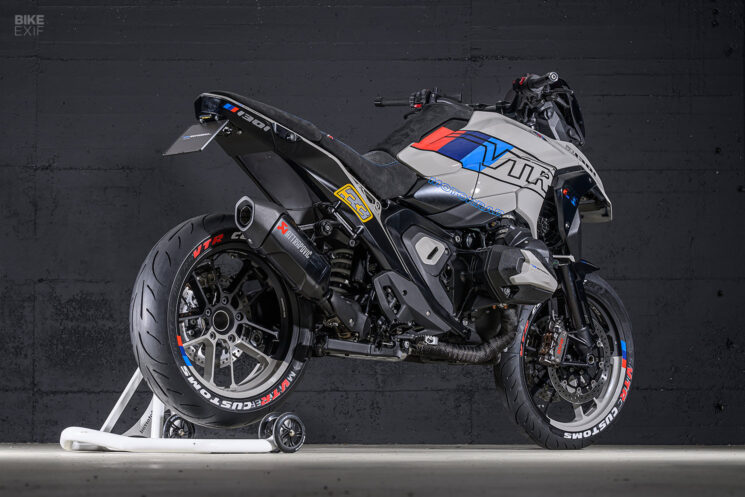
In stock form, the BMW R1300GS lacks some visual cohesion. But VTR’s version trims the fat to reveal the muscular, road-focused machine underneath. Their R1300GS wouldn’t be our pick for off-rad excursions—but we’d sure love to carve canyons on it. [VTR Customs]
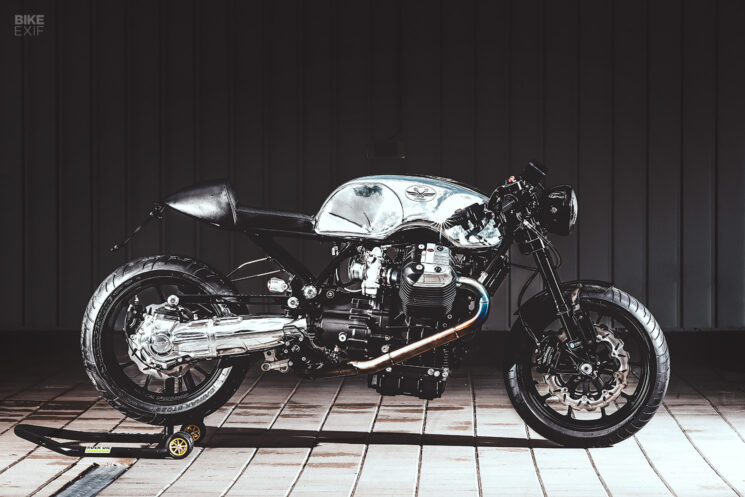
Moto Guzzi café racer by Radical Speedshop We’ve been big fans of Stefan Bronold’s work since he first launched Radical Guzzi. His workshop may have changed its name to Radical Speedshop, but he’s still pumping out some of the best modern Moto Guzzi customs in the world.
The Bavarian started tinkering with Moto Guzzis as a teenager and has never looked back. His specialty is tuning Moto Guzzi’s 8-valve engine to within an inch of their lives—which is exactly what he’s done on this build, the ‘Fugitive MK2.’
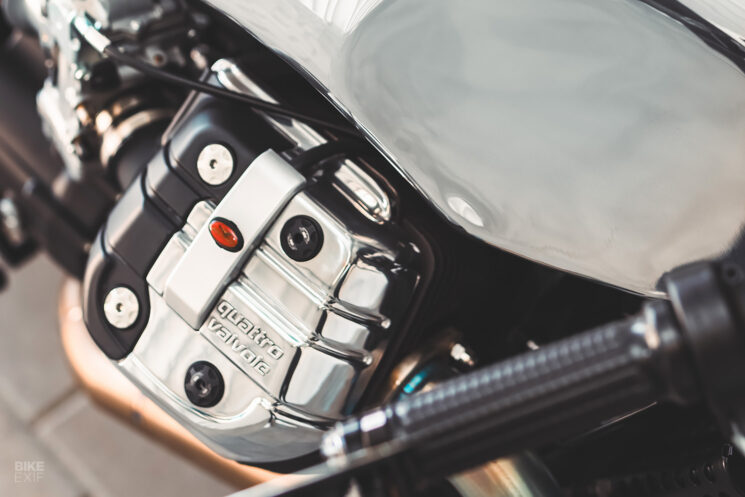
At the heart of the bike sits a 1,200 cc four-valve Moto Guzzi engine—one of the more powerful motors produced by the Mandello del Lario factory. Stefan doesn’t do things by halves, though.
First, he bumped the capacity to 1,400 cc by transplanting the cylinders and pistons from a California 1400. Then, he modified the intake and exhaust channels and installed a new cam with a sharper performance profile. There’s also a pair of stonking huge Keihin carburetors throwing fuel down the Guzzi’s gullet.
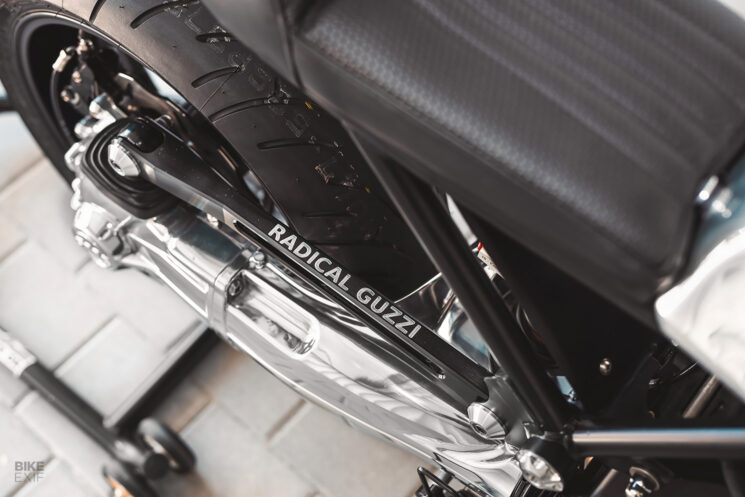
This Italian Stallion was popped into a Moto Guzzi Bellagio frame. The Bellagio started life as a 940 cc two-valve cruiser, but the frame shares more than a little DNA with Lino Tonti’s masterpiece—the Le Mans 850. With a huge power and torque bump, the Bellagio frame now has the engine it deserves.
The bike also got Marzocchi front forks from an MV Agusta F3 (with Wilbers internals), a fully adjustable rear shock from YSS, and a custom swingarm. Beringer brakes provide stopping power for the beast, which now weighs under 440 lbs.
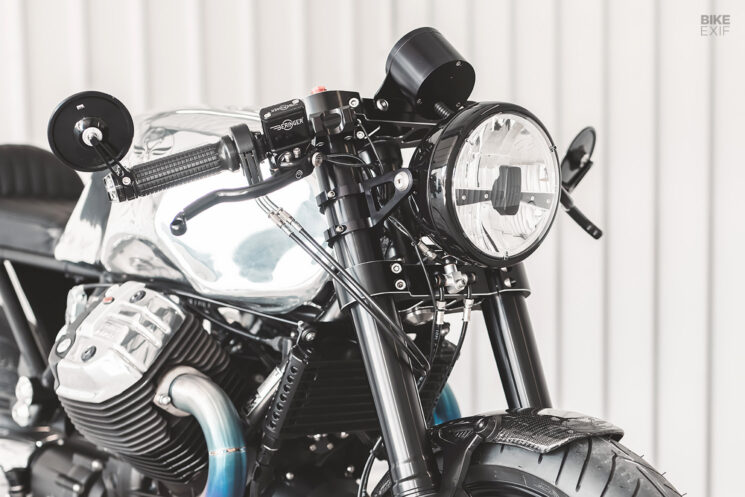
The front fender is carbon and the exhaust is a custom piece from Mass Moto. The long aluminum tank has been polished to a perfect shine, which suits the overall vibe perfectly. The modern café racer aesthetic continues at the back, with a custom seat perched upon the trimmed subframe. A smattering of Motogadget parts helps keep the cockpit beautifully simple.
By this point, we don’t just want to ride a Moto Guzzi built by Radical Speedshop… we need to. [Radical Speedshop | Images by, and with thanks to, Sacha Nagel]
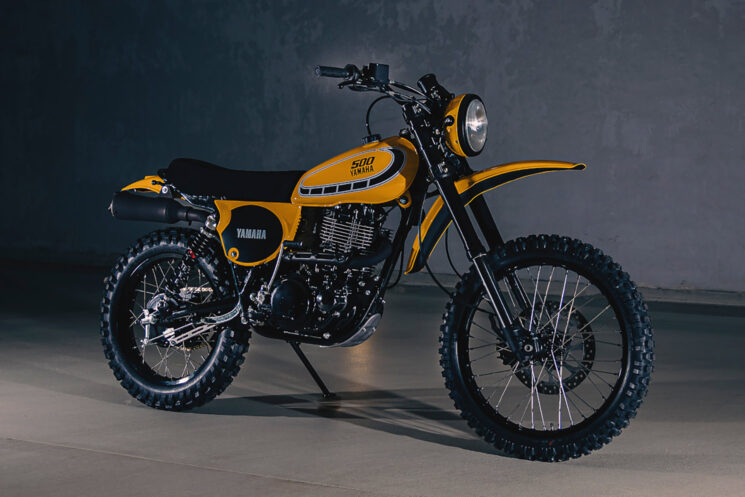
Yamaha XT500 by Motogadgets The Yamaha XT500 didn’t really have any competition when it splashed onto the scene. Yamaha had set its sights on creating a big-bore trail bike that wasn’t horrible to ride on the road, making the XT500 a dual-sport motorcycle before dual-sport motorcycles existed. It was also a very good-looking motorcycle and the design still holds up today.
This 1981 Yamaha XT500 is the work of Jeffrey Wardenaar—a Dutchman with a penchant for big singles.
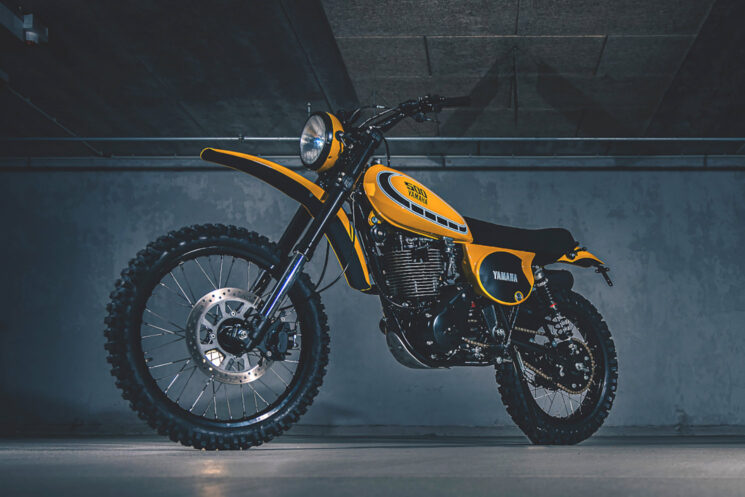
Jeffrey started his workshop, Motogadgets (not to be confused with the German electronics brand, Motogadget), back in 2003. He’s made a name for himself specializing in Yamaha singles, the Yamaha XS650 twin, and the Honda XR and XL series—so he knows a thing or two about improving Japanese trail bikes.
The XT’s 499 cc single-cylinder mill was never easy to start with a kick starter, so Jeffrey fitted an electric start. The engine was also treated to a complete rebuild with upgrades made along the way. The work has boosted output to 40 hp—a 25 percent increase over stock.
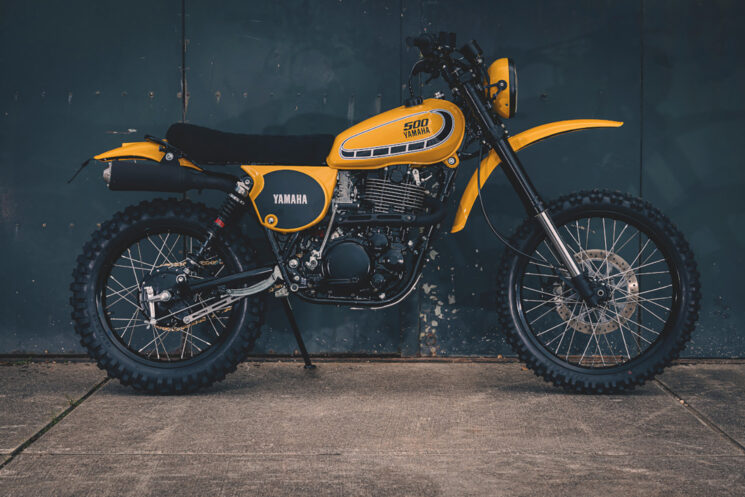
Up front, Jeffrey has fitted the upside-down forks and disc brake from a Honda dirt bike. A high-mounted front fender was carried over from the original bike, sitting below a new headlight and a full suite of new rider controls.
The subframe was trimmed down by a few inches and the stock seat pan was shortened. XT500 seats were well-padded and Jeffrey has maintained this old-school rally bike aesthetic in this regard, which we love. Making the ride even more plush is a set of new, longer YSS shocks.
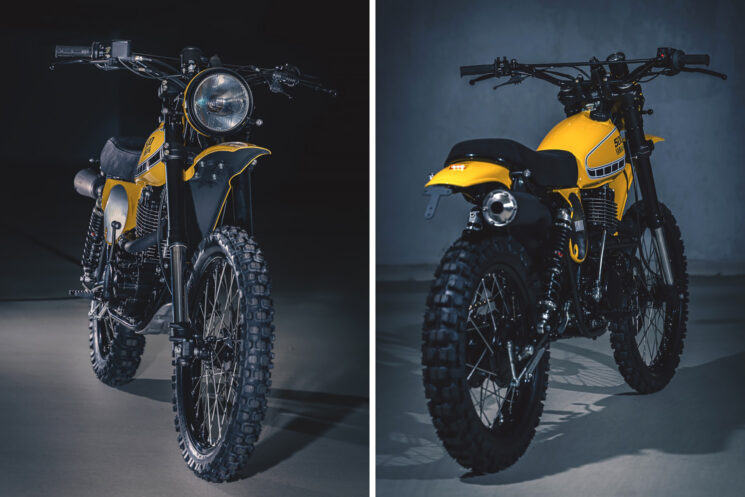
The rear fender was shrunk down too, and has an integrated LED tail light, with the turn signals relocated on either side of the seat. A race muffler, knobbly tires, and a fresh TZ Yamaha-inspired paint job complete the build.
What’s not to love? [Source]
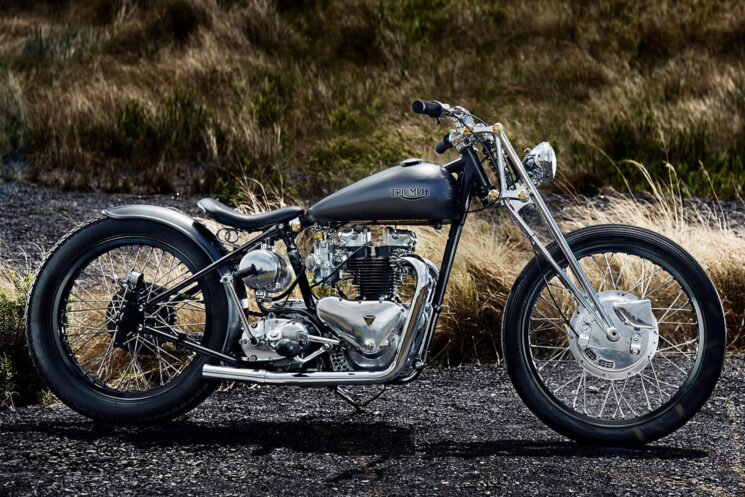
1949 Triumph Speed Twin bobber by Paul Berger Even as an Aussie, Paul Berger has always loved British bikes. The trait was carried over from his father—so when his mother passed away 11 years ago, Paul bought a 1949 Triumph Speed Twin that he and his old man could rebuild together to keep them busy.
Starting with just a frame, engine, and gearbox, Paul knew they had their work cut out for themselves. The two blokes settled on a hotrod bobber style, with an emphasis on simplicity. Paul’s father was kept occupied with the extensive engine and gearbox rebuilds, while Paul himself focussed on the rest of the bike.
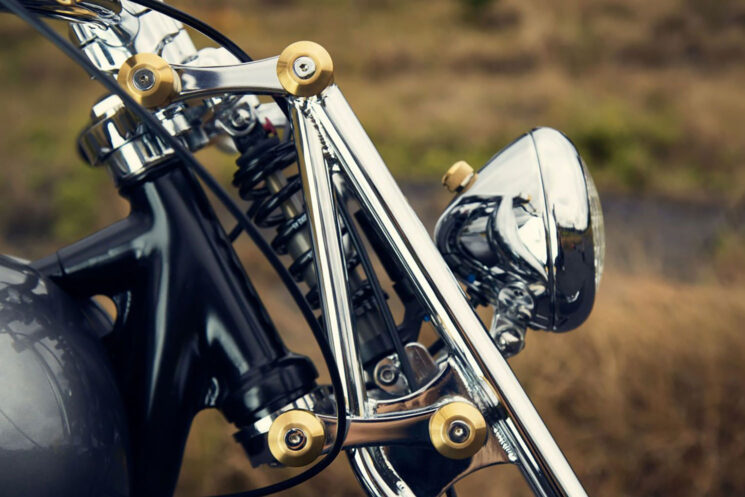
“Getting something to look simple and just right is incredibly difficult,” says Paul. “I think the greatest challenge was not what to do, but what not to do.”
Spitfire Motorcycles in California hooked the guys up with a resized Harley-style girder front fork, with a Fox mountain bike shock ironing out the bumps. A fresh set of 21F/19R Borrani rims and classic Avon tires allowed Paul to fine-tune the stance, while a twin-leading shoe brake was fitted to the front for extra stopping power.
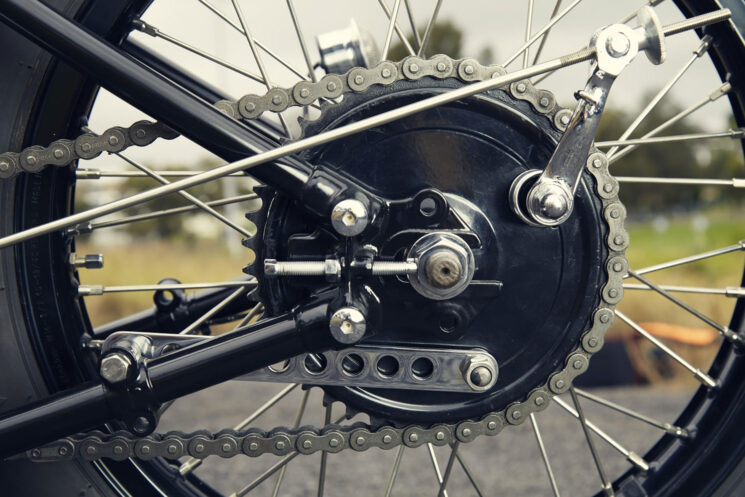
Roland Sands Design bar risers hold the 32-inch-wide handlebars in place, which are fitted with Kustom Tech controls. Being a vintage bike, the lack of switchgear makes for a clean look—but there is a tiny GPS speedometer fitted. The bike retains its original six-volt electronics.
The split tanks are another Harley-Davidson part, but they were extensively modified to fit the Triumph frame and flow beautifully with the lines of the bike. Since it’s a hardtail, the only suspension is the springs under the Biltwell Slimline seat. Cooper Smithing Co are the legends behind the tidy rear fender.
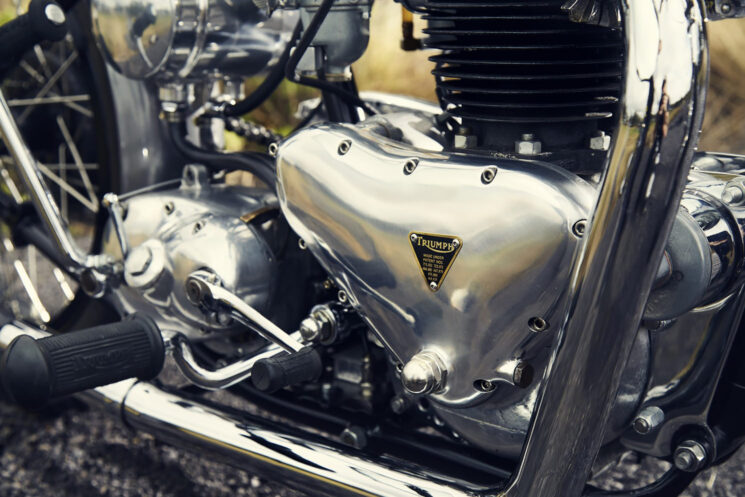
The engine was slotted in with a pair of 26 mm Amal carbs and a Mooneyes oil tank slung under the seat. The beautiful exhaust was made by Bob at Classic All Parts while the experts at Blu-Chrome did the extensive plating and polishing.
Finished with silver paint from the modern Triumph Thruxton, this vintage bobber is low, lean, and incredibly clean. [Source]
